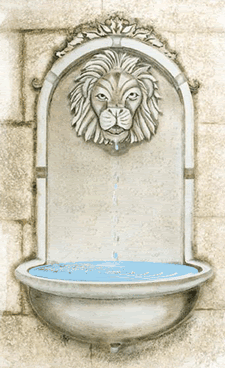Sonnets
 After an intensive, 10-year effort requiring an immense amount of reading and research, Lewis finished for publication the book English Literature in the Sixteenth Century, which was his contribution to the many-volume The Oxford History of English Literature. Many times during this labor, he referred to his project as the "O HEL". But it created a stir in academic circles, and even Tolkien wrote to George Sayer "a great book, the only one of his that gives me unalloyed pleasure."
After an intensive, 10-year effort requiring an immense amount of reading and research, Lewis finished for publication the book English Literature in the Sixteenth Century, which was his contribution to the many-volume The Oxford History of English Literature. Many times during this labor, he referred to his project as the "O HEL". But it created a stir in academic circles, and even Tolkien wrote to George Sayer "a great book, the only one of his that gives me unalloyed pleasure."The first thing to grasp about the sonnet sequence is that it is not a way of telling a story. It is a form which exists for the sake of prolonged lyrical meditation, chiefly on love but relieved from time to to time by excursions into public affairs, literary criticism, compliment, or what you will. External events--a quarrel, a parting, an illness, a stolen kiss--are every now and then mentioned to provide themes for the meditation. Thus you get an island, or (if the event gives matter for more than one piece) an archipelago, of narrative in the lyrical sea.
~C.S. Lewis, English Literature in the Sixteenth Century, bk. III.I, para. 16 (1954)
The sonneteers wrote not to tell their own love stories, not to express whatever in their own loves was local and peculiar, but to give us others, the inarticulate lovers, a voice. The reader was to seek in a sonnet not what the poet felt but what he himself felt, what all men felt. A good sonnet (mutatis mutandis and salva reverentia) was like a good public prayer: the test is whether the congregation can "join" and make it their own, not whether it provides interesting materials for the spiritual biography of the compiler....The whole body of sonnet sequences is much more like an erotic liturgy than a series of erotic confidences.
~C.S. Lewis, English Literature in the Sixteenth Century, bk. II.II.II, para. 17 (1954)
___________________________
On this day:
1964 Letters to Malcolm: Chiefly on Prayer is published by Geoffrey Bles, London.
Cool link of the day: Sonnet Central, an archive of English sonnets, commentary, and relevant web links




2 Comment(s):
It strikes me that Tolkien was pretty stingy with his praise. I wonder if he was like that with his kids? "Nice fingerpainting, the only one I can look at with unalloyed pleasure."
*ducks incoming missiles*
Tolkien was probably about like Lewis. "That's a fine effort; I like that part especially. But you could improve it by..." I don't think either could help being didactic.
Completely unrelated: I find the concept of an "erotic liturgy" diconcerting.
Post a Comment
<< Home